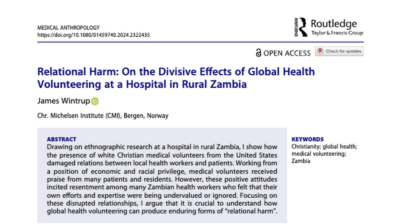Why don't clinicians adhere more consistently to the guidelines for Integrated Management of Childhood Illness (IMCI)?
The Integrated Management of Childhood Illness (IMCI) has been introduced to reduce child morbidity and mortality in countries with a poor health infrastructure. Previous studies have documented a poor adherence to clinical guidelines, but little is known about the reasons for non-adherence. This mixed-method study measures adherence to IMCI case-assessment guidelines and identifies the reasons for weak adherence. In 2007, adherence was measured through direct observation of 933 outpatient consultations performed by 103 trained clinicians in 82 health facilities in nine districts in rural Tanzania, while clinicians’ knowledge of the guidelines was assessed through clinical vignettes. Other potential reasons for a weak adherence were assessed through both a health worker- and health facility survey, as well as by a qualitative follow-up study in 2009 in which in-depth interviews were conducted with 40 clinicians in 30 health facilities located in two of the same districts. Clinicians performed 28.4% of the relevant IMCI assessment tasks. The level of knowledge was considerably higher than actual performance, suggesting that lack of knowledge is not the only constraint for improved performance. Other important reasons for weak performance seem to be 1) lack of motivation to adhere to IMCI guidelines, stemming partly from a weak belief in the importance of following the guidelines and partly from weak intrinsic motivation, and 2) a physical and/or cognitive “overload”, resulting in lack of capacity to concentrate fully on each and every case and a resort to simpler rules of thumb. Poor remunerations contribute to several of these factors.
Ottar Mæstad








